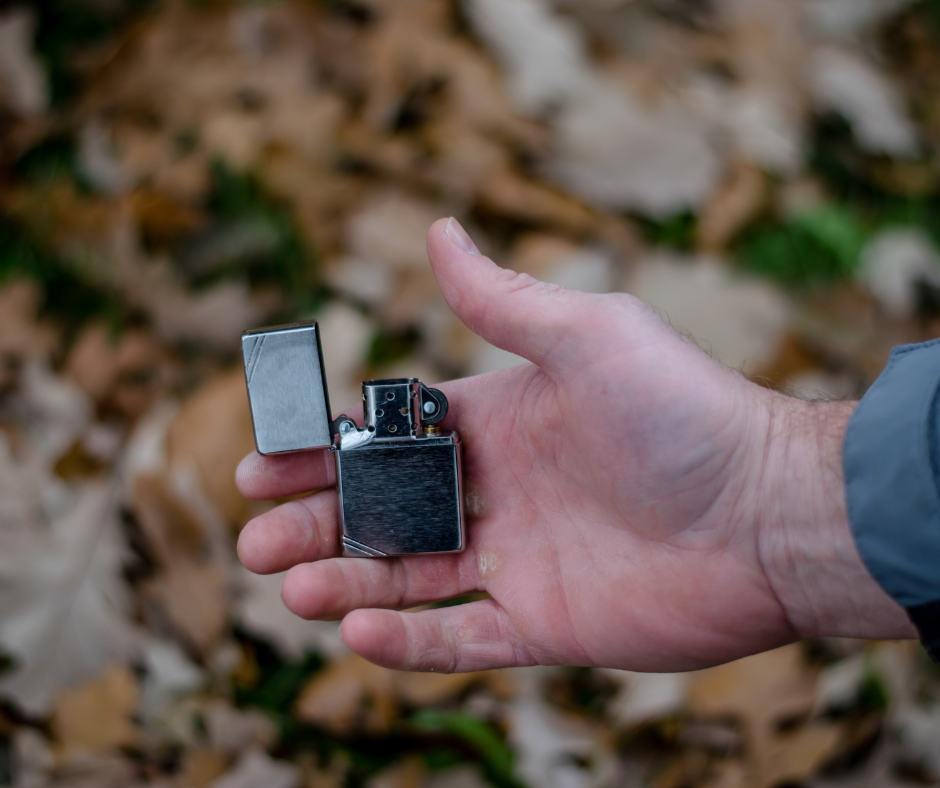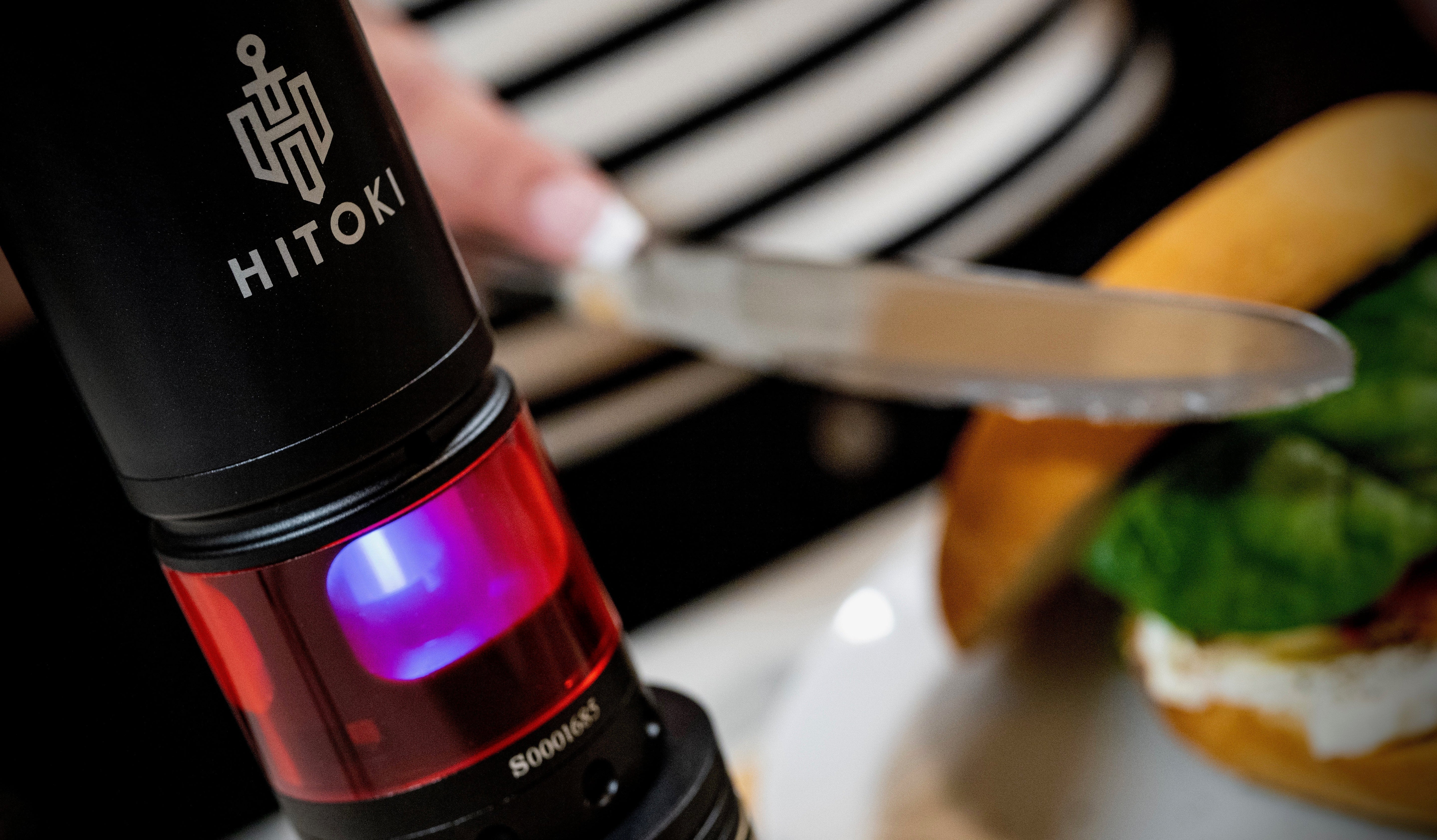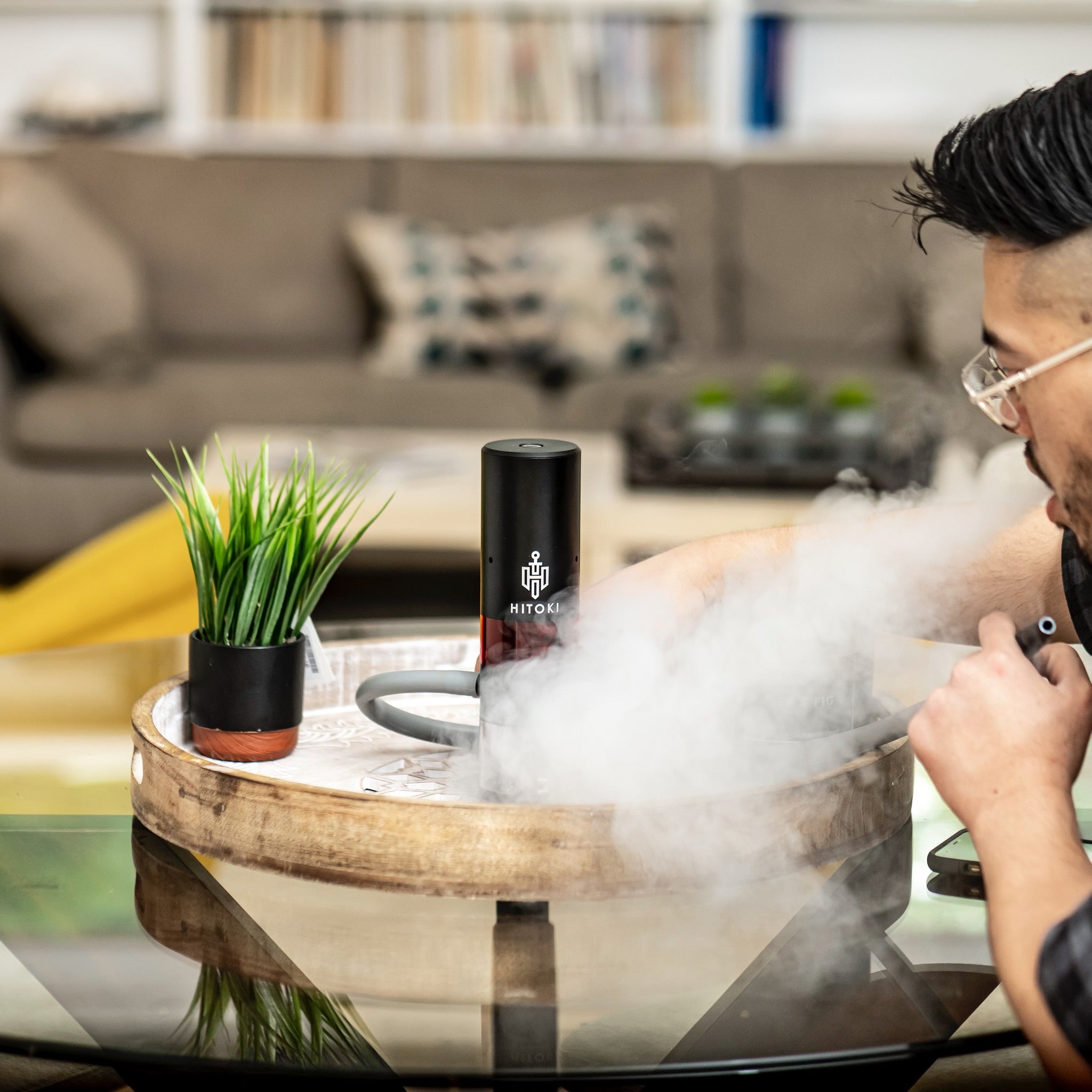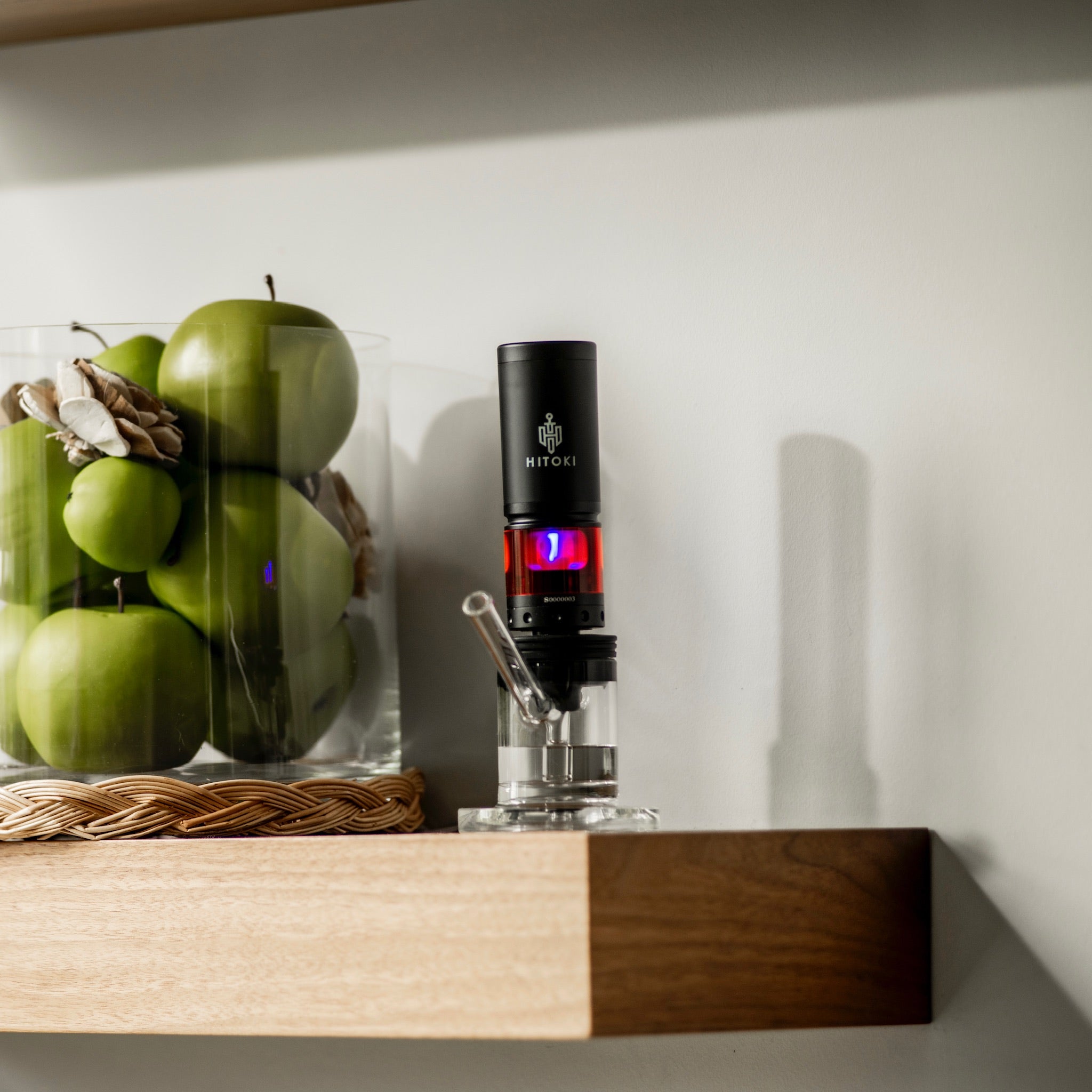Butane lighters are some of the most common lighters in the world. They became the primary fuel source for lighters in the 1950s, so they have been around for years and used by generations upon generations of smokers. But did you know that they can have harmful effects on a person’s overall health? So even if you’re smoking a reasonably safe product, such as cannabis, using a butane lighter can still pose a significant risk to your well-being.
The butane released by a butane lighter is kept inside a pressurized chamber. When piezoelectrical crystals are compressed or a flint is struck, it creates a spark. Butane becomes liquid once compressed but goes back to its gaseous form once the pressure is reduced. This is what makes it one of the best options for lighters.

Cigarette and tobacco smokers are not the only ones who use butane lighters, there are butane vaporizers as well that vapers like because the vapors released are tasty and of good quality. These vaporizers are most useful when a user does not have electricity.
While some users swear that butane lighters are more efficient than some of the other lighter types in the market, it cannot be denied that there are disadvantages to using them.
What Happens When You Inhale Butane from a Lighter?
The main content of the butane lighter is odorless and clear flammable gas. By separating water, wet gas dehydration and the removal of crude oil remnants, butane is refined so it can be used for lighters. Regardless of this refinement, there are still potential risks to using it, particularly when it is inhaled.
When a person inhales butane from a lighter, they can develop various health issues and symptoms. The severity of these effects is dependent on how long the exposure was and the level of concentration of the butane.
The most common immediate effects are:
- Nausea and vomiting
- Headaches and confusion
- Chest pain and difficulty in breathing
- Lightheadedness and dizziness
- Slurred speech
- In serious cases, there is a loss of consciousness
Those who repeatedly use butane lighters can experience the following long-term effects:
- Increased risk of rapid, irregular heartbeat—a situation known as SSDS or Sudden Sniffing Death Syndrome
- Risk of developing heart problems
- Respiratory system damage, which can lead to bronchitis, asthma or emphysema and other chronic respiratory issues
- Central nervous system damage that may cause memory problems, depression, anxiety, and cognitive impairments
In some cases, inhaling butane from lighters can cause blackouts, hallucinations, aggressive behavior, and mood swings.
Lung tissues are delicate, so they are easily irritated, and this is what happens when you inhale butane. Butane that gets into the lungs may cause you to develop spasms in your larynx, which can in turn lead to suffocation or choking. This is especially true if large amounts of butane are inhaled.
Consumer products that use butane often label it as an allergen because it can irritate the skin, eyes, and lungs.
Although butane is considered a low-toxicity substance, you can still inhale small amounts of it into your lungs. After regular exposure over the years, even the smallest doses of butane will hurt your overall health.
Thus, it is important to determine the amount of butane that gets past the flame (of your lighter). It’s important to know how much of it is ingested and how much is still being inhaled to get an idea of how bad it is for your lungs.
In truth, however, any amount of butane inhaled is dangerous and can lead to death. Butane inhalation is always a risk because there is no way that it can be done safely. Often, the cause of death is heart failure.
How Dangerous Can Butane for Lighters Become?

Butane fluid for lighters is liquefied and its ignition source can either be a steel wheel friction calcium carbide or an electronic ignition. The lighter’s transmission fire structure can be hand type, pick-up type, or friction type. Its flame size is adjustable.
N-butane or butane is defined as two alkane hydrocarbons that are characterized by the identical molecular formula—isobutene and n-butane.
Generally, butane is regarded as a volatile substance, especially when inhaled. Its gas is known to cause Sudden Sniffing Death Syndrome (one of the life-altering effects of inhalation mentioned earlier). This is what happens when a person who inhales butane gas has a heart attack or cardiac arrhythmia, particularly after inhaling or after doing heavy or stressful physical activity or exercise. Butane makes the heart more sensitive to adrenalin so when the body does strenuous activities, there’s an elevated risk of a cardiac event happening.
Butane-related deaths are almost always caused by respiratory depression such as respiratory depression, ventricular fibrillation or cardiac arrest, and other cardiac effects and immediate toxic effects.
What Are the Alternatives to Using a Butane Lighter?
There are several alternatives to butane lighters if you want to be on the safe side while enjoying your regular puffs. Here are the four most popular ones:
Solar Bowls
Solar bowls or solar hits are a unique alternative because all you need are a magnifying glass and the sun’s rays. All that you need to do is put the magnifying glass over your cannabis and allow the rays of the sun to ignite your cannabis. It’s natural, safe, and environmentally friendly. It’s also less expensive.
The only downside to this alternative is the unpredictable weather. You’ll have to know how to stretch your patience and possess the skills to position the magnifying glass and the cannabis in the right positions.
Hemp Wand/Glass Wand/Dab Wand
If you choose this alternative, all that you need is a glass rod, one that’s thick and small. Heat one end of your glass rod or wand. Once you are satisfied that the heat level can vaporize your weed, gently press the wand against the cannabis inside your pipe or bowl.
This method does not use butane and is therefore cleaner, safer, and more sustainable. You can reuse your glass wand as long as you want to. Be sure, though, to have a torch in hand as it is needed to heat your wand. Wear protective gloves when handling the torch as it can get very hot.
Plasma Lighters or Electric Lighters
Also known as e-lighters or electric lighters, plasma lighters are rechargeable and highly convenient to use. You do not need to use fuel or butane. E-lighters are windproof as well.
The biggest downside to choosing plasma lighters, however, is that they can be pricey when compared with regular or traditional lighters. They are also not ideal for larger bowls or joints because of the small arcs they create.
Hemp Wick
Hemp wicks are made up of beeswax-dipped hemp twine. They are used for lighting bowls and joints. It’s one of the most natural alternatives to butane fuel for lighters. Hemp wicks utilize the flame produced after lighting one of its ends with a match. The flame is what lights up the cannabis.
This alternative does not depend on butane. Hemp wicks are also easy to use although they can be a little slow burning. Users swear that their puffing experience significantly improved after using hemp wicks because of the better taste that they produce.
Lasers

Lasers have emerged as a compelling alternative to traditional butane lighters due to their precision, safety benefits, and environmental advantages.
Users can precisely control the temperature at which their cannabis is heated by adjusting the laser's power and duration.
This level of control ensures that the cannabis is heated to the desired temperature without the risk of combustion.
Another advantage is the enhanced flavor experience that lasers provide.
There are other alternatives that are safer than butane, including:
- Flame-free lighters – like e-lighters, these lighters are windproof and butane-free and produce flame through high heat levels or small sparks
- Toothpick or dry spaghetti noodle – this is the old-school way of lighting lighters and all that you need to do is find a dry toothpick or spaghetti noodles and light it using the flame from your stove; your toothpick or noodle becomes a temporary match and butane is removed
Conclusion
Using butane gas for your pipe or vaporizer may be a common practice that has been popular for generations, but this doesn’t mean that you are obliged to use it even if you do not want to. There are several alternatives, especially if you want to avoid the life-altering consequences of inhaling butane from lighters. Using hemp wicks is one of the most popular options, especially for those who want every vaping experience to be safe, memorable, and satisfying.
Hemp wicks were made to answer the need for a healthier, more flavorful, and satisfying alternative to dangerous butane lighters. They’re also cleaner, so you won’t have to worry about spreading all the waste that is typically produced by butane lighters.

Another alternative to butane lighters are lasers, like the Hitoki Trident and Saber. They help you control the heat just right, which keeps the flavors of your herbs perfect. Plus, there's no flame with lasers, so they're safer to use.
Exploring your options will help ensure high-quality consumption and responsible enjoyment. This way, you are confident that you and the people around you are safe and there is mutual respect. You shouldn’t be afraid to experiment and explore if you want to find the option that best satisfies your needs. It’s the only way to make every vaping experience count.






Share:
Bong vs. Vape: Is There a Difference?
From Fire to Laser: A Historical Overview of Smoking Devices